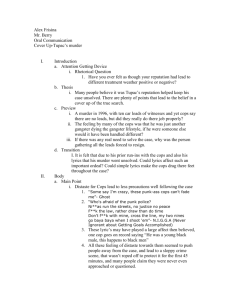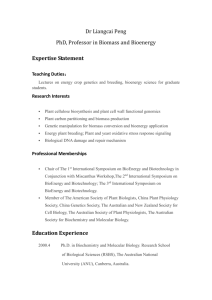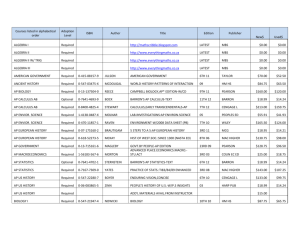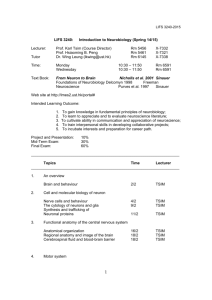thesis details
advertisement
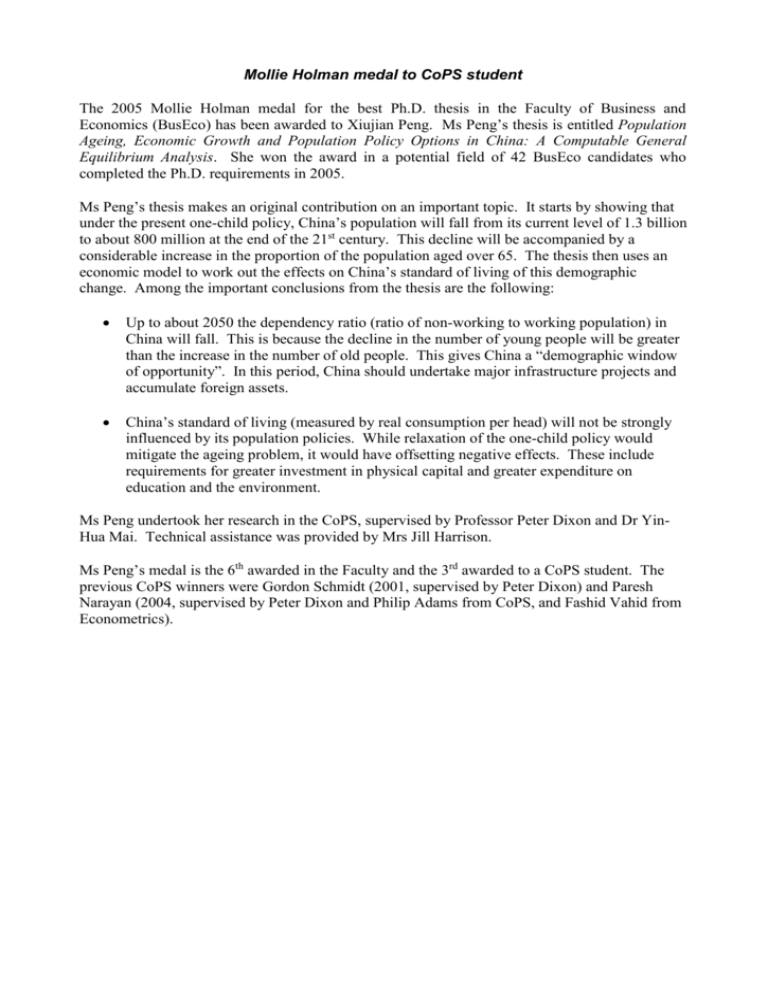
Mollie Holman medal to CoPS student The 2005 Mollie Holman medal for the best Ph.D. thesis in the Faculty of Business and Economics (BusEco) has been awarded to Xiujian Peng. Ms Peng’s thesis is entitled Population Ageing, Economic Growth and Population Policy Options in China: A Computable General Equilibrium Analysis. She won the award in a potential field of 42 BusEco candidates who completed the Ph.D. requirements in 2005. Ms Peng’s thesis makes an original contribution on an important topic. It starts by showing that under the present one-child policy, China’s population will fall from its current level of 1.3 billion to about 800 million at the end of the 21st century. This decline will be accompanied by a considerable increase in the proportion of the population aged over 65. The thesis then uses an economic model to work out the effects on China’s standard of living of this demographic change. Among the important conclusions from the thesis are the following: Up to about 2050 the dependency ratio (ratio of non-working to working population) in China will fall. This is because the decline in the number of young people will be greater than the increase in the number of old people. This gives China a “demographic window of opportunity”. In this period, China should undertake major infrastructure projects and accumulate foreign assets. China’s standard of living (measured by real consumption per head) will not be strongly influenced by its population policies. While relaxation of the one-child policy would mitigate the ageing problem, it would have offsetting negative effects. These include requirements for greater investment in physical capital and greater expenditure on education and the environment. Ms Peng undertook her research in the CoPS, supervised by Professor Peter Dixon and Dr YinHua Mai. Technical assistance was provided by Mrs Jill Harrison. Ms Peng’s medal is the 6th awarded in the Faculty and the 3rd awarded to a CoPS student. The previous CoPS winners were Gordon Schmidt (2001, supervised by Peter Dixon) and Paresh Narayan (2004, supervised by Peter Dixon and Philip Adams from CoPS, and Fashid Vahid from Econometrics).





